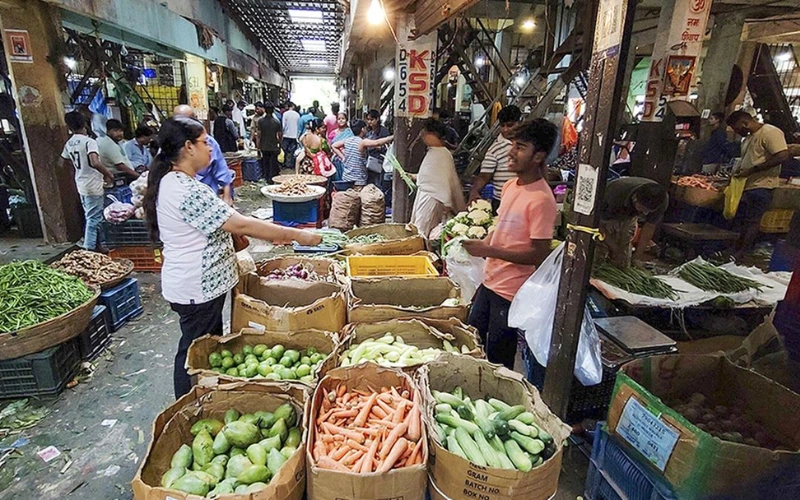India wastes 73.6 lakh tonnes of fruits and 1.2 crore tonnes of vegetables, which amounts to a whopping over ₹1.52 lakh crore annually, according to a NABCONS study for the Government. This represents anything between 6-15 per cent of all the fruit and 5-12 per cent of vegetables produced in the country, constituting 3.7 per cent of India’s agricultural GVA1.
The ₹ 1.52 lakh crore figure of food waste not only reveals economic wastefulness, but is also representative time and labour of over 12.5 crore small and marginal farmers squandered, waste of precious groundwater, energy and other inputs, lost GDP potential and with 19.4 crore Indians remaining undernourished, an opportunity to alleviate hunger.
Economically, this waste is a drag on India’s potential. McKinsey projects that, with structural reform, India’s agriculture sector could grow to ₹120 lakh crore by 2035 and ₹265 lakh crore by 2047. But such growth is difficult if ₹1.5 lakh crore worth of food is discarded annually. Unlike wheat and rice, perishables lack the safety net of minimum support prices (MSP).
Why extend MSP to fruits and vegetables?
Extending MSP to fruits and vegetables shouldn’t be positioned as a blanket subsidy but as a strategic intervention which will lead to price stabilisation, farmer protection and minimise the loss due to wastage. This frame of reference model lends itself to provide a minimum base price in times of oversupply, encourage focus on the supply chain like investments in cold chains, specialised transport, warehouse and other infrastructure. Besides cutting food wastages, MSP for perishables will also encourage crop diversification, rein in environment degradation while enhancing rural economy and empowering MSMEs.
Addressing cold chain gaps with processing :
However, not all fruits and vegetables lend themselves to cold storage: cauliflower suffers from freeze damage, cucumbers and tomatoes turn to a mushy watery mess. These restrictions highlight the fundamental need for value add with food processing as a parallel strategy, particularly for these kinds of sensitive crops. To strengthen the saleability and export potential of these perishables they can be easily converted into products like fruit juice, onion flakes, tomato puree, ginger paste, potato starch, jams, jellies and pickles amongst others. These exports will not only strengthen the state exchequer with valuable foreign exchange but also build the country’s reputation as a global agri processing player.
Institutions already in place :
A large part of expertise and infrastructure required to implement MSP for perishables already exists within the current agri-ecosystem. Quasi-government organisations like NAFED, NCCF and various State Agricultural Marketing Boards have decades of proven experience in commodity procurement. They have established expertise not only in foodgrain procurement, famer outreach but also have been initiating market stabilisation exercise when there is a demand/supply mismatch.
NAFED, especially stands out with over 6-decades of demonstrated ability in successfully effecting MSP for pulses and oilseeds in the country. It’s pioneered online procurement with its digital platform, e-Samridhi which has brought greater market access to the farmers while making the entire MSP process seamless and transparent at a scale.
Cooperative models & rural empowerment :
For wider involvement and faster implementation of MSP procurement of fruits and vegetables and the large-scale processing for value-addition it is imperative to tap into the existing cooperative ecosystem in the country. Existing cooperative frameworks like Farmer Producer Organisations (FPOs) and Primary Agricultural Credit Societies (PACS) have experience and can be harnessed in aggregating produce from their member base which often consists of small and marginal farmers. Together they can better negotiate their produce prices and synchronise logistics and storage replicating the foodgrains MSP success of a decentralised procurement system.
News Courtesy : The hindu business line


